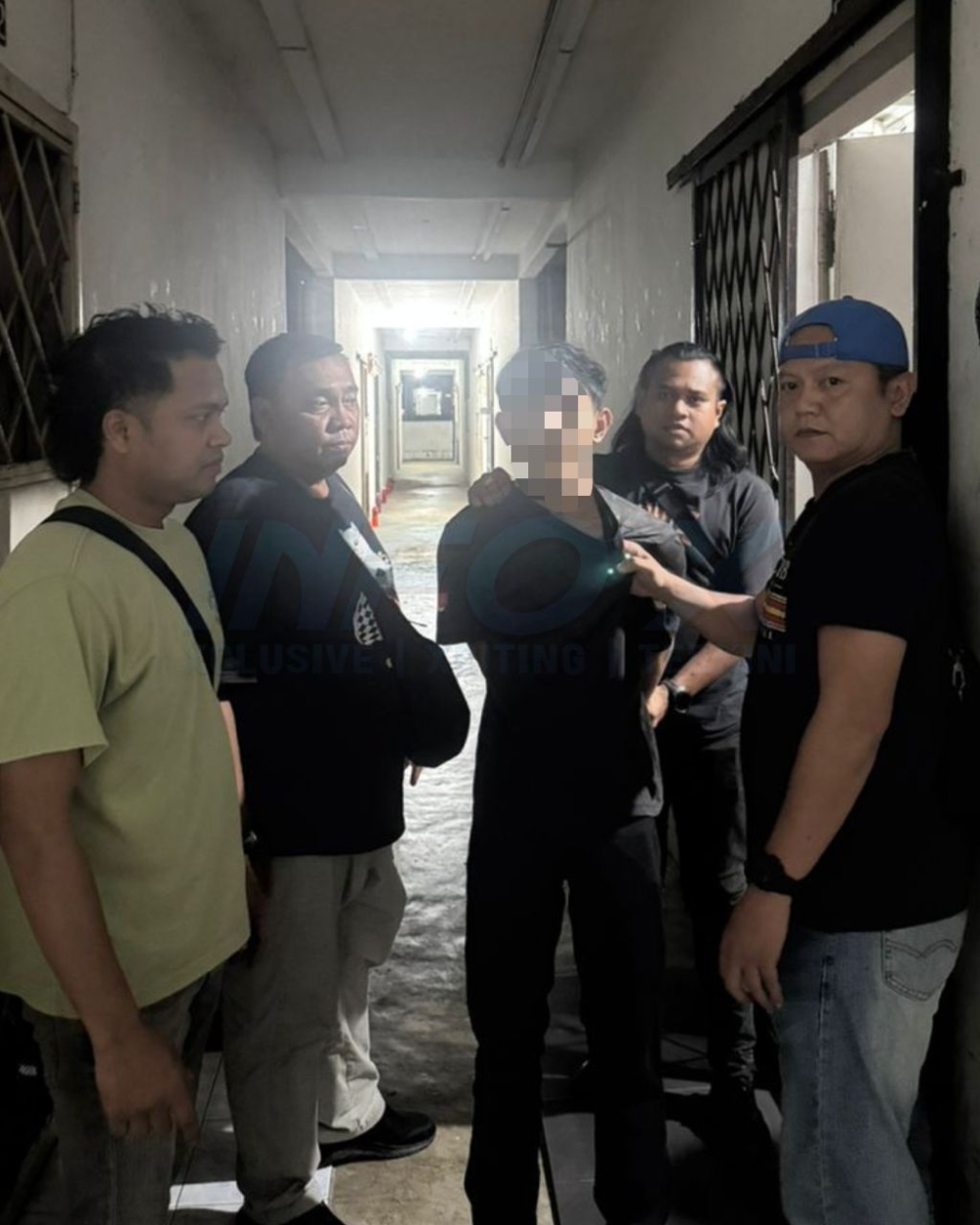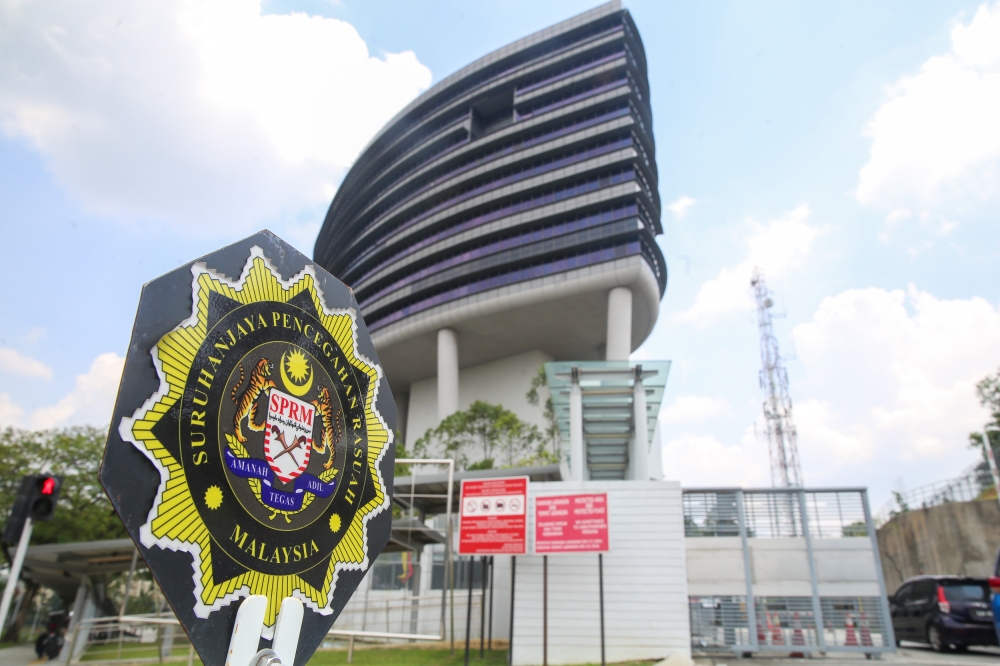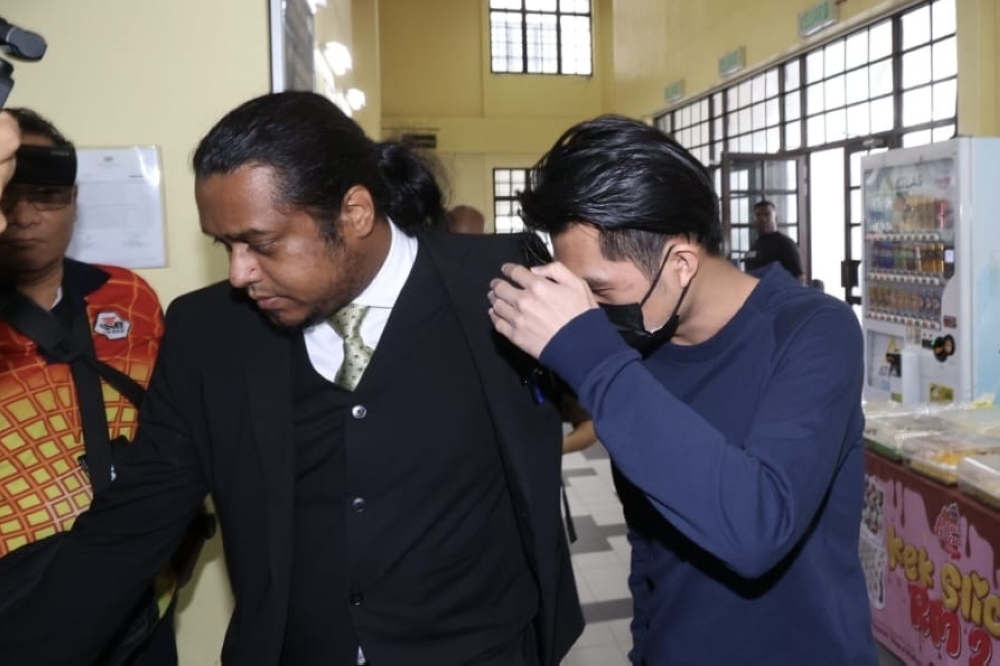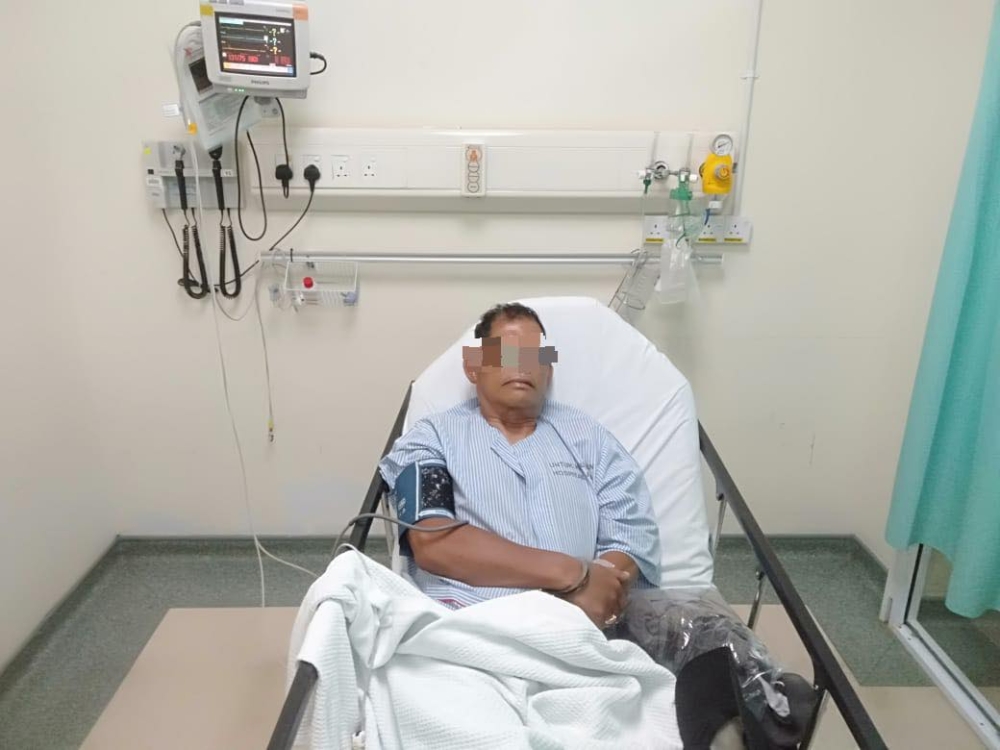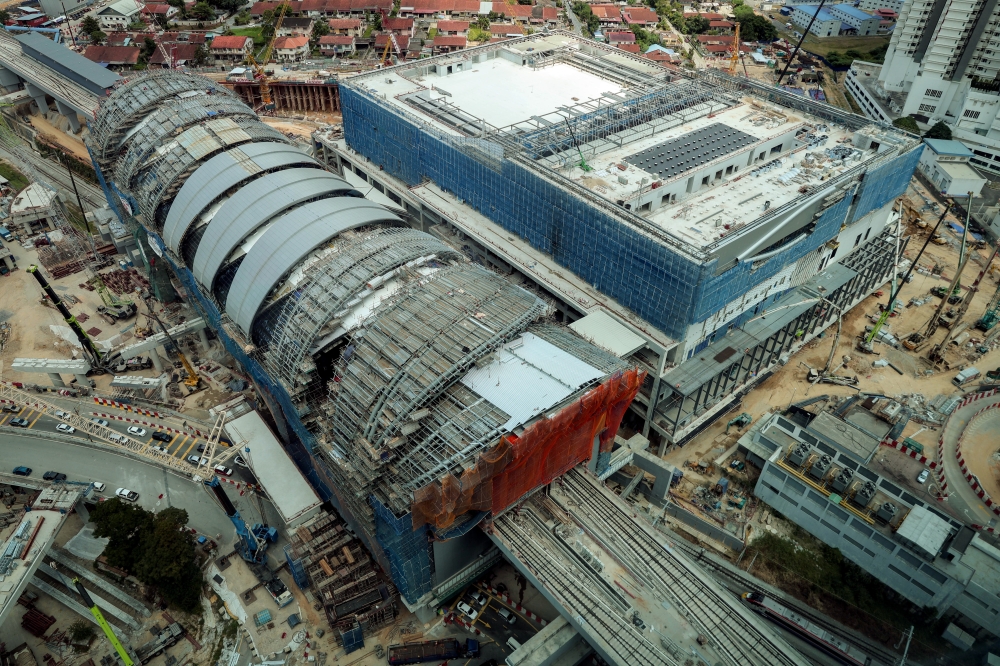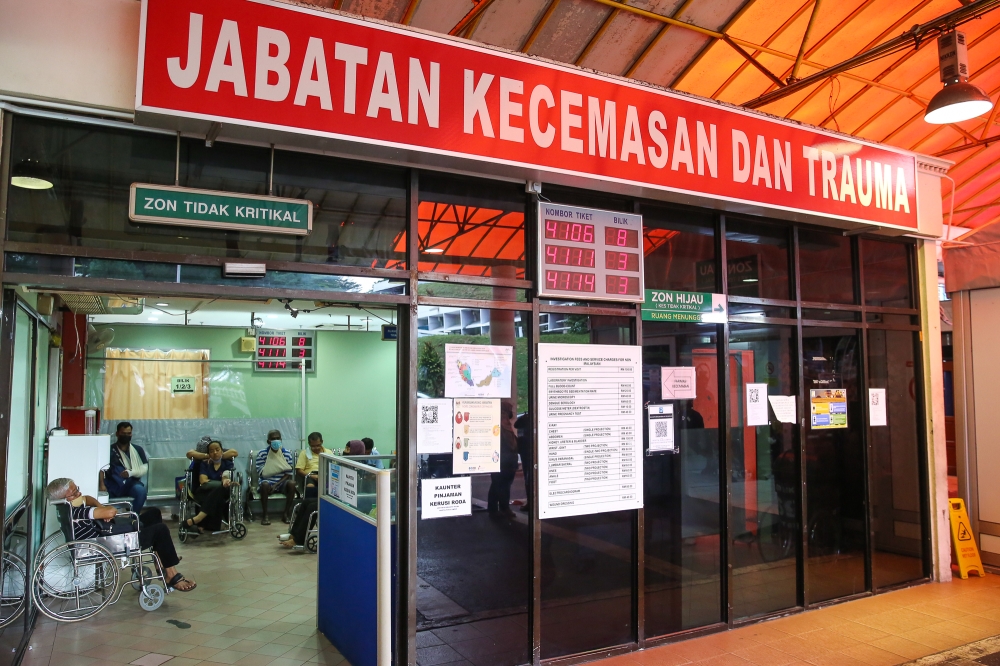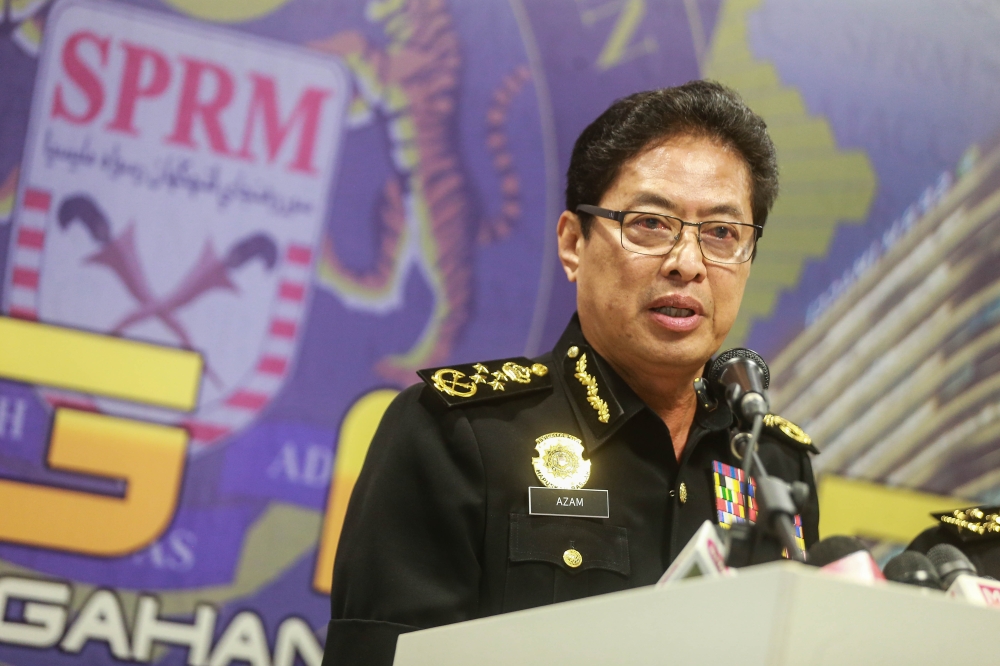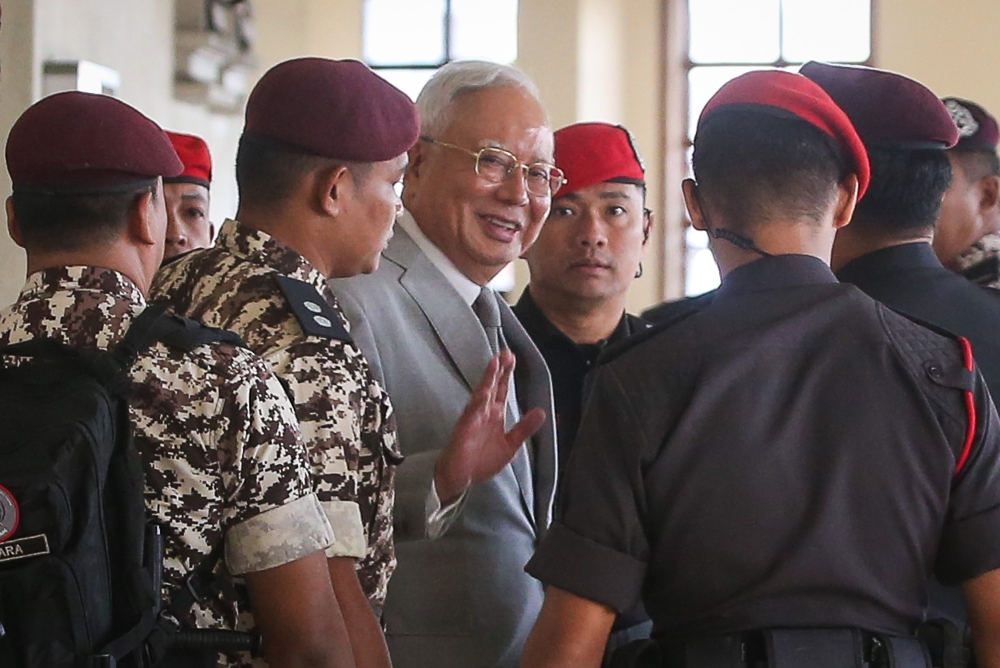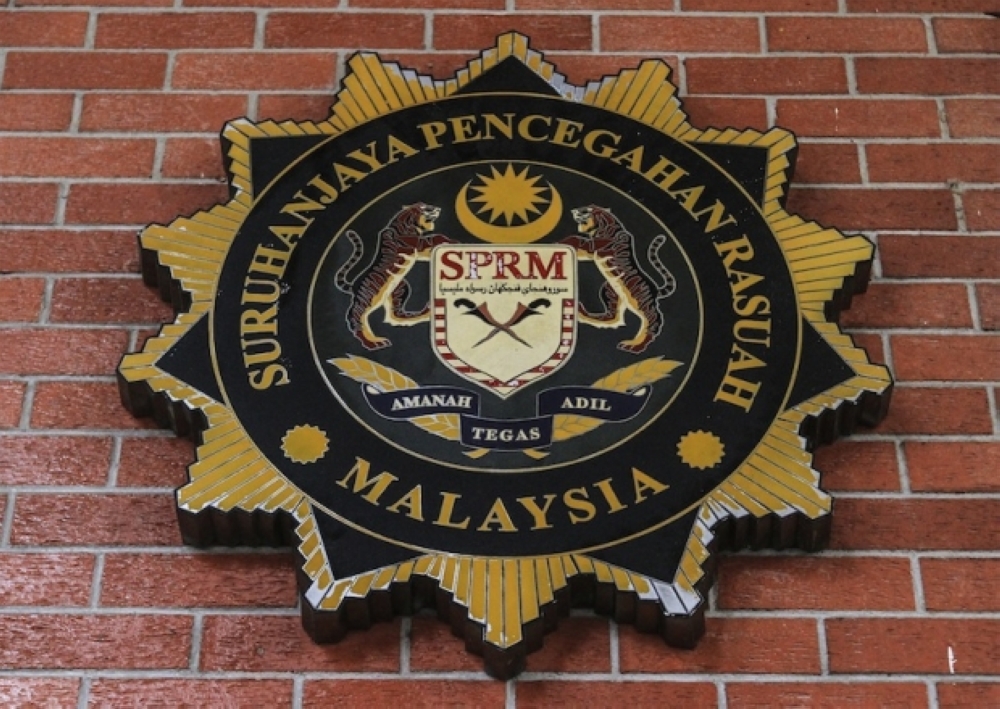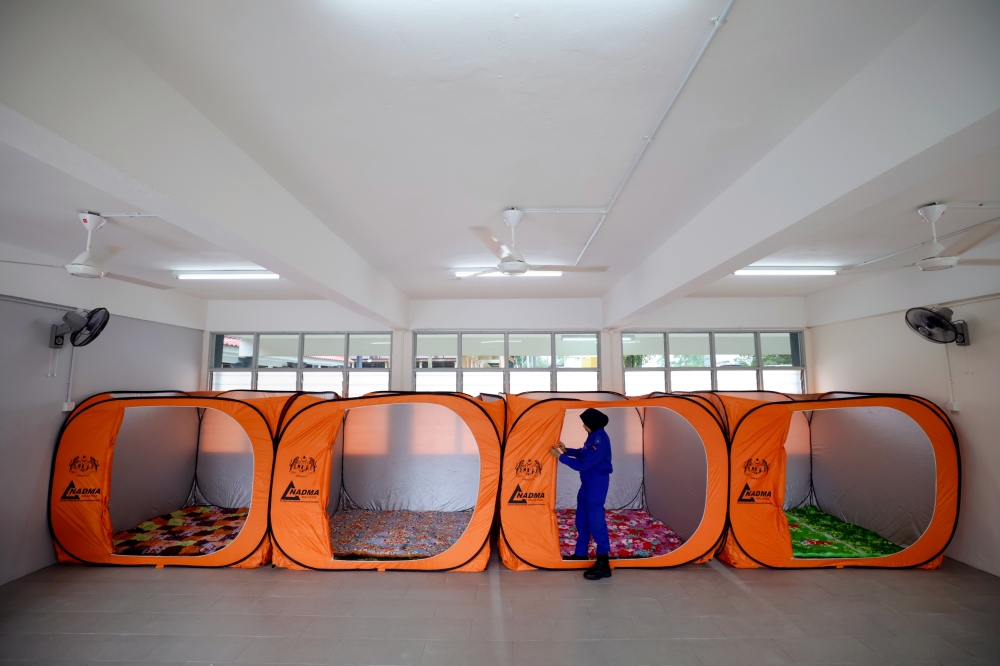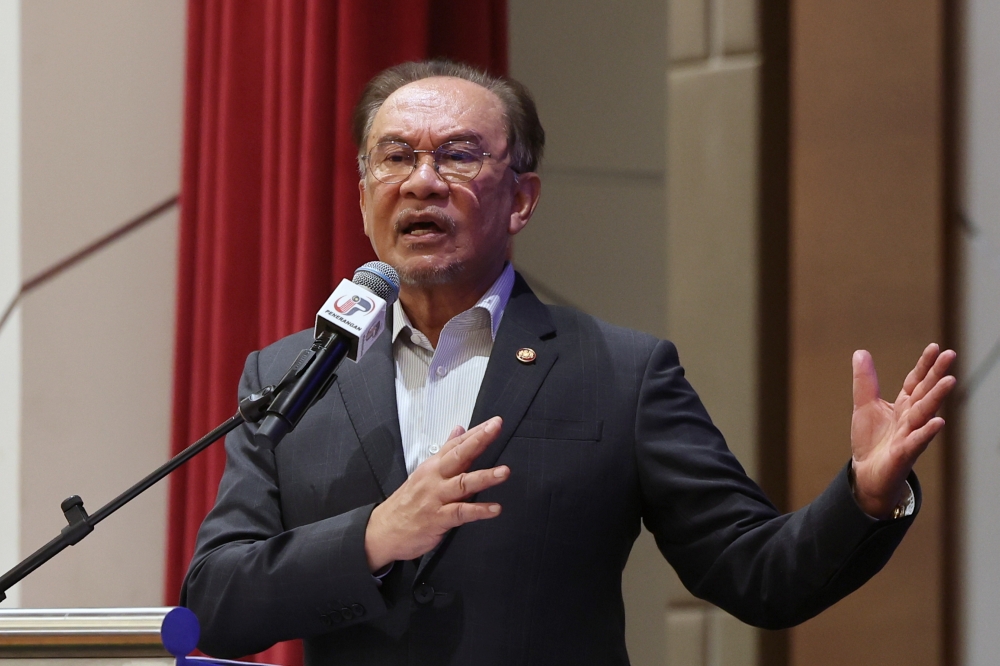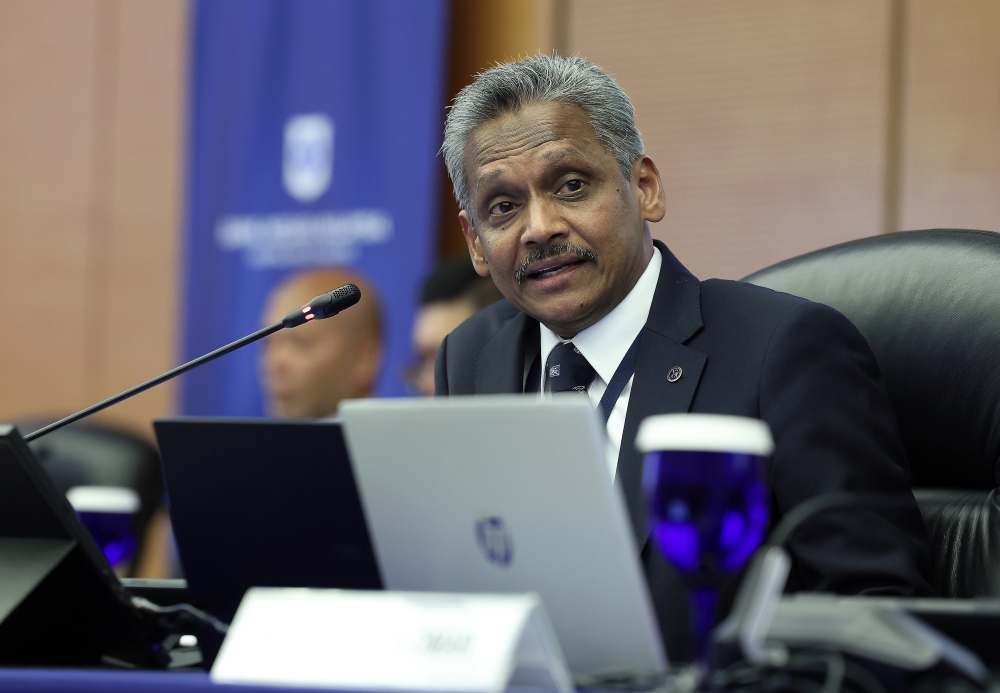PUTRAJAYA, April 10 — Datuk Seri Najib Razak today lost in four appeals linked to his trial over RM42 million of former 1Malaysia Development Berhad (1MDB) subsidiary SRC International Sdn Bhd.
The Federal Court today unanimously dismissed three of Najib’s appeals — including his bid for a gag order to stop the media and any person from discussing the merits of the SRC trial.
The seven-judge panel also unanimously ruled in favour of the prosecution which filed the fourth appeal — which means the Attorney-General’s Chambers is not required to produce a letter of appointment of senior criminal lawyer Datuk Sulaiman Abdullah as the lead prosecutor in the SRC case.
Chief Justice Tan Sri Richard Malanjum chaired the panel that delivered the decision.
The other judges were Chief Judge of Malaya Tan Sri Zaharah Ibrahim, Chief Judge of Sabah and Sarawak Datuk Seri David Wong Dak Wah, Tan Sri Ramly Ali, Datuk Tengku Maimun Tuan Mat, Tan Sri Idrus Harun and Datuk Nallini Pathmanathan.

Decision on four appeals
Malanjum read out the panel’s decision on Najib’s gag order bid, which the latter had previously failed at both the High Court and Court of Appeal.
Malanjum pointed out that there were no more jury trials in the country — a system which had in the past been used to justify the rule of sub judice where public discussions on ongoing court matters were barred for fear that the jury would be influenced by such comments.
“All current trials are heard by a judge sitting alone,” the chief justice said.
“Even if the gag order was refused, the appellant still has the recourse to law on defamation and contempt,” he said, noting that Najib could still sue for defamation or initiate contempt of court proceedings.
Another judge Idrus read out the brief grounds of the panel’s decision to dismiss Najib’s bid for additional documents to be delivered from the prosecution before the RM42 million trial starts.
Among other things, Idrus noted that the prosecution had already delivered to Najib’s lawyers a total of 32 volumes of documents comprising 7,000 pages that the prosecution intends to use as evidence in the trial.
Idrus noted that Najib’s lawyers were asking for additional documents that the prosecution does not intend to use in trial and which the latter was not legally obliged to give, saying that Najib’s request would effectively mean a seeking of the entire investigation paper and all witness statements given to investigators.
Wong, the Chief Judge of Sabah and Sarawak, read the broad grounds of the Federal Court’s decision to dismiss Najib’s appeal on the way his RM42 million trial was transferred from the Sessions Court to the High Court.
Najib had challenged the prosecution’s withdrawal of certificates of transfer that were used to shift the seven charges in the RM42 million trial to the High Court, as well as how the High Court judge transferred the case from the Sessions Court back to the High Court.
Wong said that the High Court did not commit a breach of natural justice when it decided not to postpone the hearing of the transfer issue to another day to allow for Najib’s team to prepare and carry out full research.
Wong noted that the High Court took the correct approach of dealing quickly with the interlocutory matter, noting that it is not a complicated issue and that Najib’s lawyers were able to subsequently fully argue the transfer matter before the Court of Appeal and the Federal Court.
He said the attorney general had the power to withdraw the certificates of transfer, and that the High Court judge’s exercise of his discretion to transfer the case was not illegal or wrong.
Wong also read out the broad grounds of the panel’s decision which reversed the Court of Appeal’s ruling, where the prosecution was previously ordered to show Sulaiman’s letter of appointment to Najib.
Wong said the Federal Court was of the view that Najib does not have a legitimate expectation to see Sulaiman’s letter of appointment, noting that there is “no difference” in the concept of the public prosecutor’s appointment of Sulaiman and a private entity’s appointment of a lawyer.
“In a private engagement of counsel by a private entity, it is obvious that an opposing party has no legitimate expectation to sight the letter of appointment though their dispute is settled via an adversarial system,” he said.
Wong pointed out that if the Federal Court were to accept Najib’s argument that he had a legal right to view the letter of appointment, the impact on future cases is that any opposing party can demand to see the letter of appointment of private lawyers by the government or government-linked companies or statutory bodies in any criminal or civil case “just because there is some sort of public element in the appointment”.
“In short, we are saying that unless there is a challenge to the validity to the appointment of the counsel, there exists no duty on the appointing authority or private entity to produce the letter of appointment,” he said, having noted that Najib’s lawyers were not challenging Sulaiman’s appointment but merely asking to see the letter of appointment.
Wong also acknowledged the attorney general’s previous argument that Najib’s request to see Sulaiman’s letter of appointment as being akin to that of a “busybody”, noting that such an argument has merits.
Wong also noted that the attorney general had previously personally appeared in both the High Court and Court of Appeal to inform them of his appointment of Sulaiman as a lawyer to assist in Najib’s prosecution, which he said was sufficient unless the validity of Sulaiman’s appointment was being challenged.
Najib’s lawyer Tan Sri Muhammad Shafee Abdullah today confirmed to the Federal Court that the defence lawyers would return the letter of appointment as well as any copies made to the prosecution.
The prosecution had previously produced the letter of appointment to Najib’s lawyers within three days from the Court of Appeal’s order, but had given it without prejudice to the appeal at the Federal Court and had also said they may ask for the letter to be returned if it wins at the apex court.
In these four appeals, Najib had failed in all of these matters at all levels in the courts, except for the letter of appointment matter which he won once at the Court of Appeal.
Najib’s trial over the RM42 million SRC International funds started on April 3, and is set to resume on April 15 until May 10.
When asked regarding Najib’s application to challenge the charges in his SRC International trial for allegedly being defective, ad-hoc prosecutor Datuk V. Sithambaram said the matter came up yesterday before the deputy registrar.
Sithambaram said the prosecution and defence were asked to file their affidavit in reply by April 15 and April 19 respectively, with both sides to file in their written submissions by April 22 before the date for the application’s hearing is fixed on one of the days during April 22 to April 26.
“And hearing date will be fixed between April 22 and 26, subject to the judge giving the orders,” he told reporters when met outside the courtroom.


